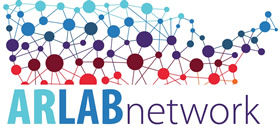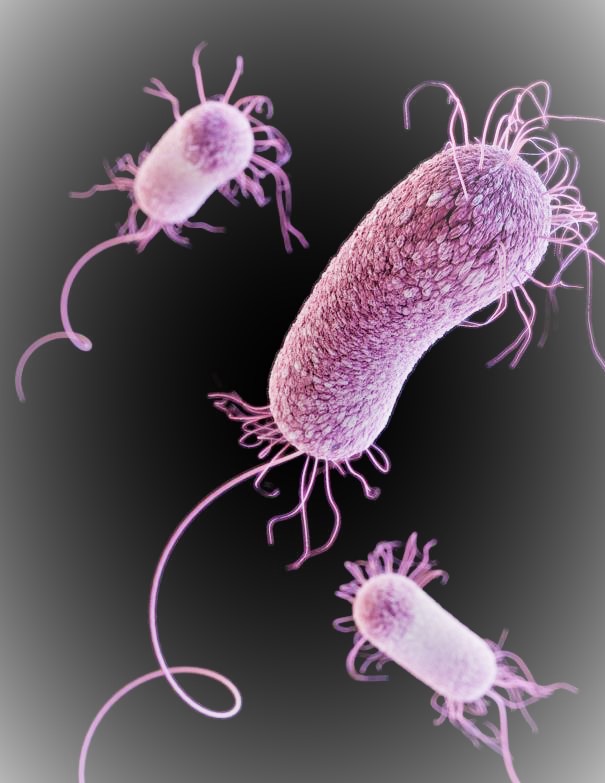About the Maryland ARLN Laboratory
The ARLN is a national network of 7 regional public health laboratories and epidemiologists that are working closely with the CDC and other public health and clinical laboratories within their states, to detect existing and emerging types of antibiotic resistance, track emerging resistance more effectively and generate stronger data to combat future resistance threats. The Mid-Atlantic region of the ARLN includes the states of Maryland, Pennsylvania, Delaware, Virginia, West Virginia, North Carolina, South Carolina and the District of Columbia. The Maryland Public Health Laboratory (MD PHL) is the regional ARLN laboratory for the Mid-Atlantic region.
MD ARLN Contacts
Robert Myers, Ph.D. - Director
Maryland Department of Health
Laboratories Administration
1770 Ashland Avenue
Baltimore, MD 21205
Liore Klein,
MSPH
Senior Epidemiologist
Lab-Epidemiology Coordinator, AR Lab Network Program
Maryland Department of Health (MDH)
Laboratories Administration
1770 Ashland Avenue
Baltimore, MD 21205
Phone: 443-681-3945
Fax: 443-681-4506
Elisabeth Vaeth MPH
Epidemiologist, Emerging Infections Program
Prevention and Health Promotion Administration
Maryland Department of Health
201 W. Preston St., 3rd Floor
Baltimore, MD 21201
410-767-9843
Rebecca Abelman
ARLN Laboratory Supervisor
Maryland Department of Health
Laboratories Administration
1770 Ashland Avenue
Baltimore, MD 21205
Mid-Atlantic State Public Health Lab Contacts
Download Point of Contact document
here. docs
MD ARLN Laboratory Testing
NEISSERIA GONORRHOEAE GRADIENT STRIP AST SERVICE
Goal: Identification and antimicrobial susceptibility determination of suspected or confirmed Neisseria gonorrhoeae clinical specimens or isolates in which treatment failure and/or antibiotic resistance is suspected.
Organisms of interest: Neisseria gonorrhoeae.
Acceptable specimen sources: Blood, conjunctival, endocervical, pharyngeal, rectal, urethral, urine, synovial fluid, and vaginal specimens. Other specimens can be tested by request; email MDPHL.ARLN@maryland.gov for additional information and/or approval.
Acceptable specimens: Pure frozen or lyophilized isolates of either confirmed or suspected
N. gonorrhoeae. Confirmed or suspected
N. gonorrhoeae grown in pure culture on media (e.g. Choc II slants or BHI slants). Clinical samples collected directly from patient and inoculated onto transport media.
Required forms:
Methodology: MALDI-TOF for bacterial identification and confirmation of N. gonorrhoeae. Antimicrobial susceptibility testing (AST) by gradient strip (Biomerieux E-test strips).
Turnaround Time (TAT): 10 calendar days.
Reporting: Identification and AST results will be sent back to the submitter via fax within 10 calendar days of receipt by MDPHL. Specimens with elevated MICs will be reported to the CDC as de-identified antibiotic resistance alerts.
Other Useful Documents/Links:
Goal: Detect the presence of carbapenemase-producing organisms in order to intervene and stop the spread.
Organisms of interest:
Non-endemic carbapenemase-producing gram negatives.
What is sent to MD PHL:
Index patient's clinical isolate if the resistance mechanism has not yet been identified. The gene responsible for carbapenem-resistance must be determined prior to screening other patients for colonization.
Rectal swabs for patients with possible exposure to the index patient (your state's HAI program epidemiologists should assist in determining the population at risk).
Body sites: Any for initial detection, Rectal/fecal swabs for colonization screening.
Initial case detection location: Clinical labs able to detect carbapenemase production, state public health laboratories.
Testing to be performed at MD PHL: Xpert Carba–R Assay (Cepheid).
Reporting: Results will be returned to the submitting state's PHL, HAI program coordinator and submitting facility and to the CDC within 24-48hours after completion of testing.
CRE Colonization Specimen Submission:
Other Useful Documents:
CANDIDA
ISOLATE SPECIATION
Goal: Identify new and emerging fungal pathogens, such as
Candida auris, that pose public health threats and better understand and monitor trends in antimicrobial resistance patterns for existing and emerging fungal pathogens
Organisms of Interest:
C. auris, Candida
species
except
C. albicans.
Confirmed or suspected
C. auris;
Candida species isolates other than
C. albicans; yeast isolates when unable to identify species after identification was attempted.
Body Sites: All body sites.
Initial Case Detection: Clinical labs should perform
Candida species identification and rule out
C. albicans.
Who is Required to Send Isolates: All clinical labs and facilities in Maryland per Code of Maryland Regulations (COMAR) 10.06.01.03. Additionally, COMAR 10.06.01.03 requires clinical labs to submit applicable isolates for all patients residing in Maryland.
Public health laboratories in other jurisdictions of the Mid-Atlantic Region are welcome to submit isolates that meet these requirements after contacting
MDPHL.ARLN@maryland.gov for approval.
Testing to be Performed at MD PHL: Species identification by MALDI-TOF, may later be reflexed for antifungal susceptibility testing.
Reporting: Organism identification reports will be mailed to submitting facility within
7 to 10 working days. If facilities require results by fax or secure email, they should contact
MDPHL.ARLN@maryland.gov to request authorization.
Candida
Isolate Species ID Specimen Submission:
Other Useful Documents:
CANDIDA AURIS
COLONIZATION TESTING
Goal: Detect the presence of
C. auris in exposed contacts of cases in order to intervene and stop its spread in health care facilities and communities.
Organism of Interest:
C. auris.
What to Send to MD PHL:
-
Index patient’s clinical isolate (when applicable) if C. auris has been identified or requires confirmation.
-
Composite axilla/groin swabs from patients with: 1) possible exposure to the index patient, 2) possible overnight healthcare exposure to a U.S. facility with known
C. auris cases, or 3) possible overnight healthcare exposure in a foreign country with known
C. auris cases.
Body Sites:
Any for initial detection; composite axilla/groin swabs for colonization testing.
Index Case Detection:
Clinical labs if able to perform
C. auris identification, state public health laboratories, or confirmatory identification made by MDPHL.
Testing to be Performed at MD PHL:
-
Preliminary qPCR for
C. auris molecular targets of swabs
-
Confirmatory qPCR of culture broths
-
Species identification by MALDI-TOF of qPCR-positive swabs or cultures
Reporting:
Preliminary PCR-positive results will be reported to the submitting state’s PHL, HAI program coordinator, and submitting facility within three working days of specimen arrival to MD PHL. Confirmed
C. auris cases will be reported to the submitting state’s PHL, HAI program coordinator, submitting facility, and CDC within 24-48 hours after completion of testing. Full turnaround time for colonization testing is ten working days.
C. auris Colonization Testing Specimen Submission:
Other Useful Documents:
Goal: Detect carbapenemase-producing
Acinetobacter and mcr-1/2.
What is sent to MD PHL: Clinical isolates (no more than 25 per site/lab each month) and limited metadata.
Organisms of interest: Carbapenem-resistant
Acinetobacter spp. and third-generation cephalosporin-resistant
E. coli and
Klebsiella spp. from any body site.
Initial case detection location:
Sentinel labs (1 per state).
Testing to be performed at MD PHL:
-
Species identification by MALDI-TOF and ViteK 2
-
Antimicrobial susceptibility testing (AST) for phenotypic confirmation of carbapenem-resistant Acinetobacter and third-generation cephalosporin-resistant extended-spectrum β-lactamase (ESBL)-producing
E. coli and
Klebsiella spp.
-
CarbaNP assay to detect carbapenemase production in carbapenem-resistant
Acinetobacter.
-
Disk dilution and broth microdilution to detect extended-spectrum beta-lactamase (ESBL)-producing
E. coli and
Klebsiella spp.
-
qPCR for Carbapenem-resistant
Acinetobacter molecular targets (KPC, NDM, OXA-48-like, VIM and IMP) and for ESBL-producing
E. coli and
Klebsiella spp (mcr-1 /2)
Reporting: The MDPHL will report detection of mcr genes or carbapenemase-producing
Acinetobacter to the submitting healthcare facility/lab, the jurisdictional HAI coordinator (submitting State PHL), and CDC within 24 hours of detection. Monthly summary reports will be submitted to CDC via APHL portal, and to jurisdictional state public health laboratories, and jurisdictional HAI/AR coordinators via a secure FTP site.
Targeted Surveillance Specimen Submission:
Other Useful Documents:
Goal: Bacterial identification and antimicrobial susceptibility determination of confirmed gonorrhea isolates.
What is sent to MDH:Neisseria gonorrhea isolated from men with urethral discharge.
Organisms of interest:Neisseria gonorrhea initially identified at the sentinel site.
Body sites: Male urethra. (Isolates from other anatomical sites may be submitted under direction from CDC).
Case detection location: Sentinel labs (selected STD clinics).
Testing to be performed at MDH:
-
MALDI-TOF for bacterial identification
-
Antimicrobial susceptibility testing (AST) by Agar dilution
Reporting: AST results will be submitted to CDC on a monthly basis. Alert MICs will be reported to CDC DTSDP, submitting sentinel site, and the pertinent local and state STD program(s) within one working day. The same will apply for retested isolates.
Gonorrhea Specimen Submission:
Other Useful Documents:
PLACEHOLDER
Goal: Act as a reference lab during outbreaks.
When to send isolates to MDH for reference testing:
-
Unique gene found in PCR (NDM, OXA, IMP, VIM)
-
Phenotypic and Genotypic result discrepancy
-
Outbreak of CRE/CRPA and further characterization warranted.
What is sent to MD PHL Clinical isolates
Body sites: Any
Case detection location: State PH labs
Testing to be performed at MD PHL:
-
PCR and AST results will be confirmed.
-
Additional testing such as Whole Genome Sequencing (WGS) may also be performed.
Reporting:
Specimen Submission for Reference Testing
Other Useful Documents 
